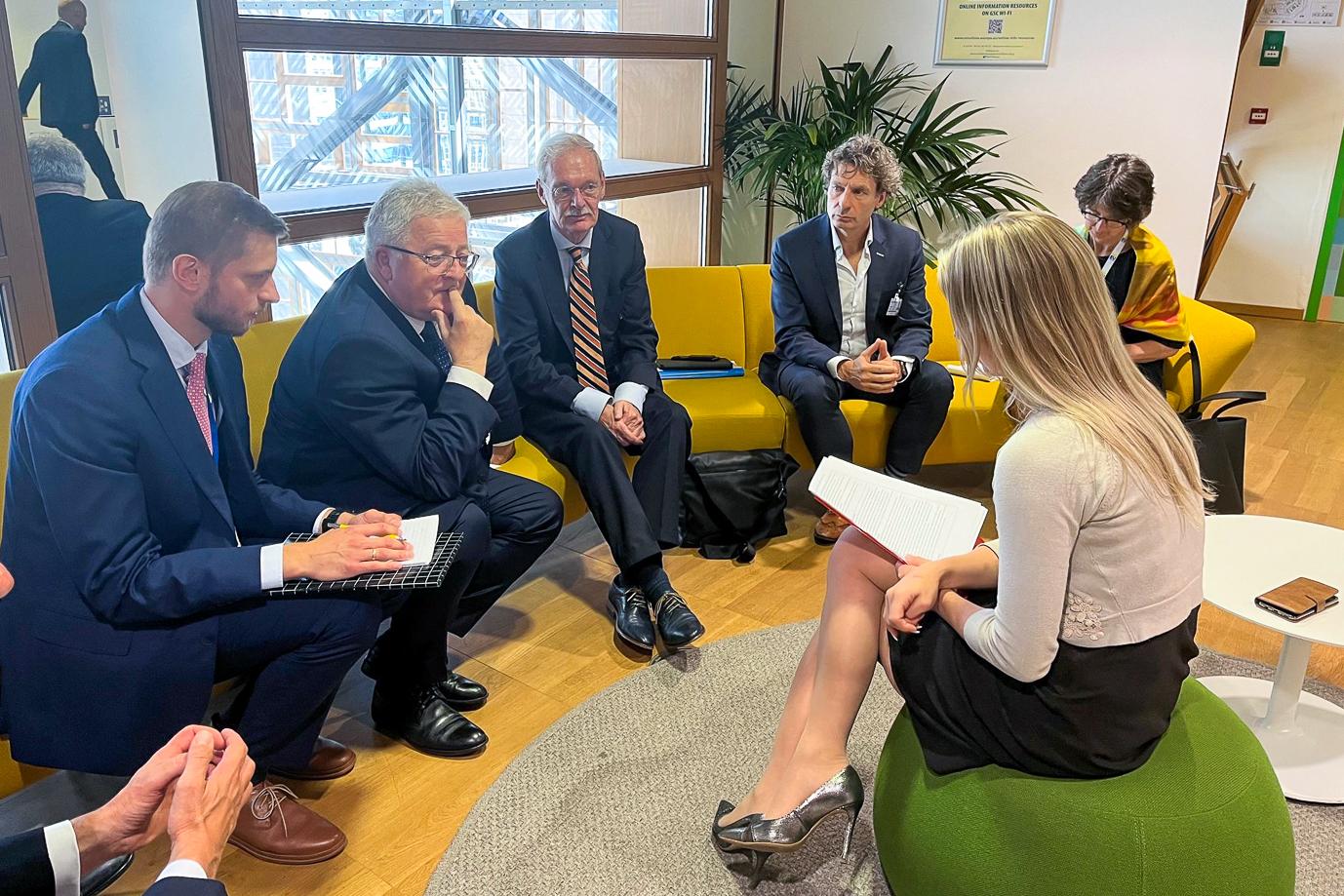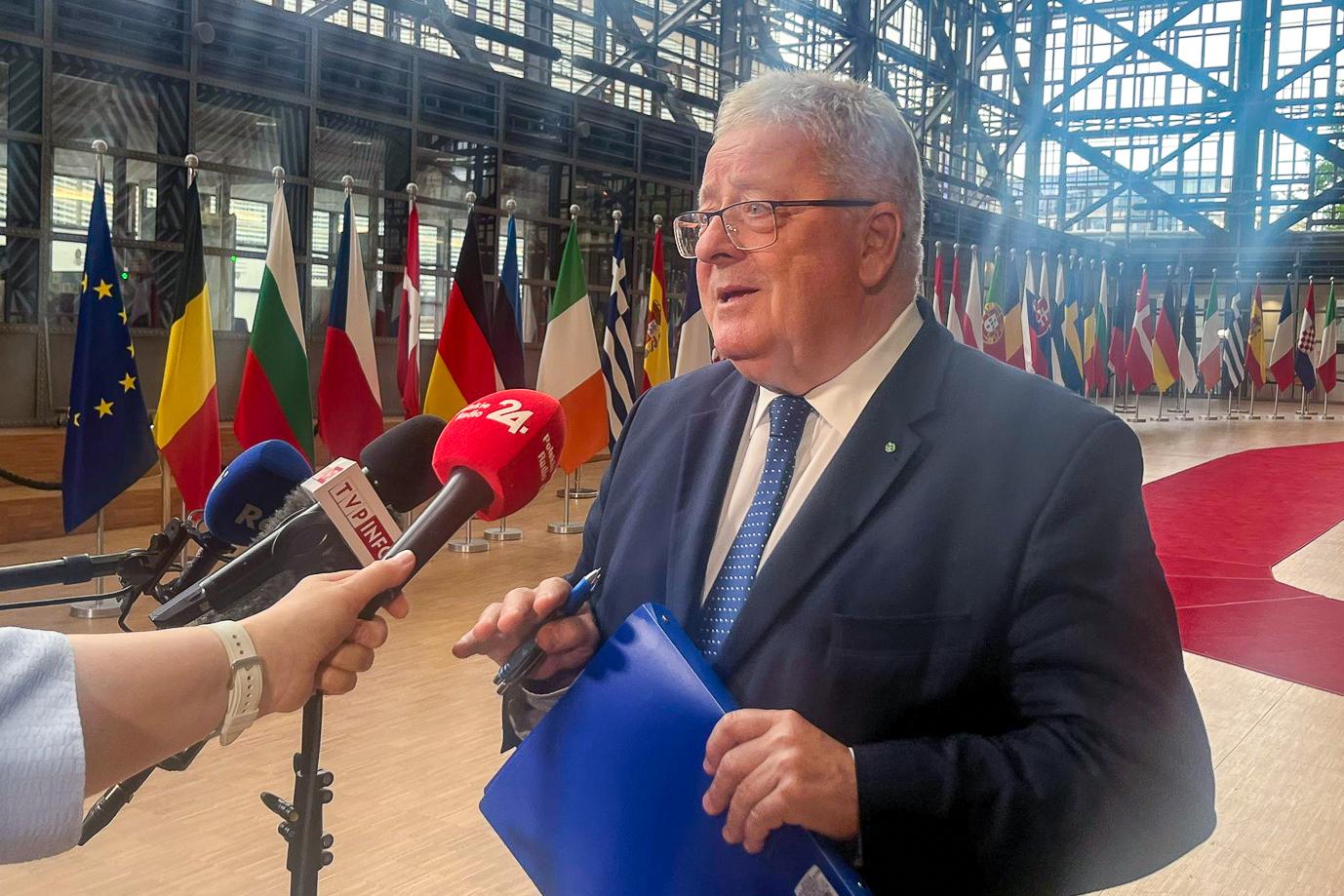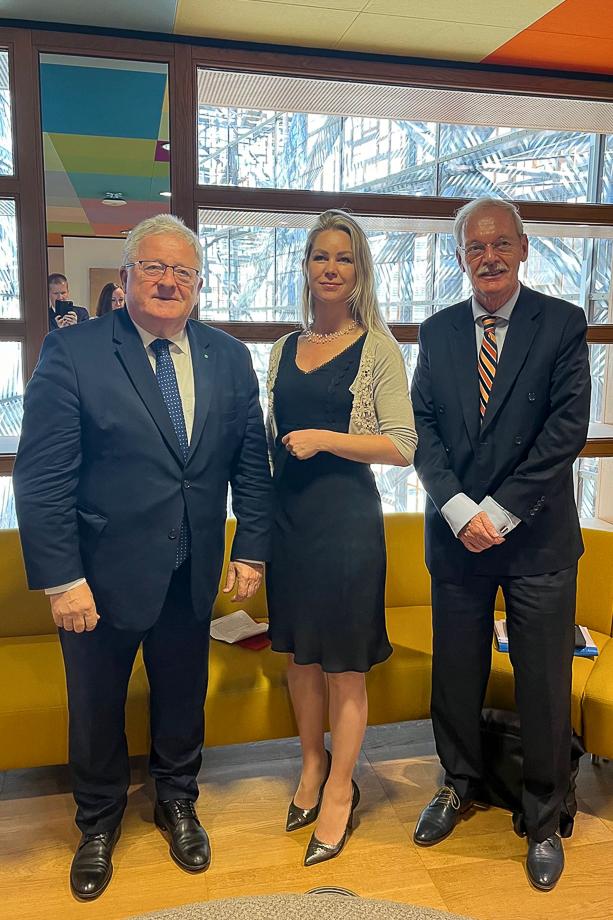Brussels: AGRIFISH Council meeting
16.07.2024
The major topics of yesterday’s meeting of the EU Agriculture and Fisheries Council (AGRIFISH) in Brussels were: long-term viability of rural areas and trade-related agricultural matters. Poland has also submitted for debate a proposal informing about the signed Joint Declaration on the creation of a European Partnership for the BIOEAST initiative. The Polish delegation was chaired by the Minister of Agriculture and Rural Development Czesław Siekierski.

Work programme of the Hungarian Presidency
Hungary, as the country holding the Presidency of the Council of the European Union, presented the work programme and priorities for the second half of 2024. One of the seven priorities of the Hungarian Presidency will be a “farmer-focused agricultural policy”. The Presidency also presented priorities for agriculture, i.e.: competitive, crisis-proof, sustainable, farmer-friendly and knowledge-based agriculture. In the fisheries sector, Hungary will focus on the competitiveness of the European aquaculture sector and the negotiation of fishing quotas.
Long-term viability of rural areas
The EU agriculture ministers held a debate on the viability of rural areas, in particular, on generational replacement and demographic aspects.
Minister Czesław Siekierski confirmed that maintaining the viability of rural areas was a challenge requiring revaluing the EU budget, strengthening the second pillar and an approach that would create responsibility of also other policies and funds for rural development.
– We must consider the fact that in the European Union we have very diversified rural areas, including those with huge retardation – said the head of the Polish delegation.
Minister Siekierski pointed out that new development challenges of a geopolitical and climate nature had emerged, to which the rural development policy must respond in its objectives and priorities.
– In the new CAP programming period, both the first and second pillars should ensure the implementation of the above-mentioned objectives, particularly those concerning the improvement in the demographic situation – stressed the Polish Minister of Agriculture.
The Minister added that the second pillar of the CAP should continue to strengthen the viability of rural areas, inter alia, in the area of not only infrastructure, but also social investments, with the use of local activity in creating directions of development.
– We must not forget that the countryside is a place of agricultural production, where short supply chains and renewable energy sources combined with smart development of rural areas need to be developed – stressed Minister Siekierski.
The Polish Minister of Agriculture highlighted that better cooperation and complementarity between the CAP and other EU policies and funds for rural development were possible.
– It cannot be the case that only the common agricultural policy is responsible for rural development. In this context, of importance is rural proofing, i.e. a mechanism for verifying the impact of other policies on rural development. The division of roles must also be maintained – between what we implement under EU funds and what we implement under national policies. All these actions should form one coherent whole – said Minister Czesław Siekierski.
Trade-related agricultural matters
Based on the information provided by the Commission, the Ministers discussed the issue of agricultural trade. The Council was informed about the current trade flows of agri-food products and about the latest negotiations on bilateral free trade agreements.
Minister Siekierski informed that Poland had repeatedly indicated that the EU trade agenda should include the protection of sensitive agricultural sectors.
– Trade negotiations should be transparent and preceded by an impact analysis. They should respect the principle of reciprocity and balance of exchange of tariff concessions – added the head of the Ministry of Agriculture.
Moreover, the Minister stressed that the agreements being concluded should allow to take quick and effective action in the event of excessive import of agricultural goods. He added that tariff preferences in access to the EU market should be conditional upon partners’ compliance with the EU standards.
– The point is both food safety and quality standards, as well as those related to sustainable development, including environmental and climate protection – said the Minister.
As the Polish Minister of Agriculture stressed, under no circumstances should concessions in access to the EU agricultural market be treated as a means balancing the concessions of trading partners in other sectors of the economy.
Referring to trade relations with Ukraine, Minister Siekierski informed that Poland supported the Commission’s announcement that the current extension of autonomous trade measures was the last one, and after their expiration – in June 2025 – the rules resulting from the Association Agreement would be restored. In the context of resuming the negotiations with Ukraine on deepening liberalisation, Minister Siekierski recalled that Poland had already submitted detailed demands to the Commission.
Minister Siekierski also referred to the information provided by the Bulgarian delegation and expressed his concern about the change of the United Kingdom’s approach to the possibility of exporting pork from areas where African swine fever in feral pigs occurred. The head of the Polish Ministry of Agriculture agreed with Bulgaria’s position that the United Kingdom changed the requirements without informing its trading partners about it and without granting an appropriate transitional period.
– I hope that in the future cooperation will be more constructive and open – said the Polish Minister of Agriculture and Rural Development.
European agriculture and forestry: the backbone of a competitive, sovereign and prosperous EU
The Austrian delegation presented a note on the designation of European agriculture and forestry, endorsed by several Member States, including Poland.
Minister Siekierski said that the note had raised many important issues as regards the role of agriculture and its future and the response to climate change. The Minister stressed that the Common Agricultural Policy had to be strong and to support farmers in an appropriate manner, also by encouraging them to use sustainable production methods.
The head of the Ministry of Agriculture stated that a comprehensive review of the European Green Deal legislation and an assessment of its impact on agriculture and forestry would be necessary.
– The amendments to be introduced as a result of the review should lift unnecessary restrictions. Also, further work is required to simplify the implementation of the CAP, so as to reduce barriers and administrative burdens – added Minister Czesław Siekierski.
The Minister also stressed that the implementation of the provisions of the Regulation on the making available on the Union market and the export from the Union of certain commodities and products associated with deforestation and forest degradation should be postponed, the more that the IT system had not yet been prepared.
European Partnership for the BIOEAST initiative
The Minister informed about the Joint Declaration on the creation of a European Partnership for the BIOEAST initiative, which was signed by 20 Ministers of Agriculture and Ministers of Research from 10 BIOEAST countries.
The head of the Polish delegation added that the partnership was aimed at addressing key challenges in the field of knowledge-based agriculture and in the field of aquaculture and forestry in the bioeconomy.
Minister Czesław Siekierski stressed that of key importance in the declaration was to ensure the security of the European food system and the potential of the bioeconomy.
– Achieving these goals requires significant investments in research and innovation, adaptation and dissemination of knowledge and the establishment of an effective framework for financing research – stressed Minister Siekierski.
The Polish Minister of Agriculture informed that he envisaged an in-depth discussion with all Member States and the European Commission on the structure and scope of the partnership, the role of participants and financial aspects.
– We want to involve more countries to sign the declaration under the BIOEAST initiative, in particular, the countries of the Western Balkans, Ukraine and Moldova – added Minister Siekierski.
European programmes for the promotion of agricultural products
The Spanish delegation presented a note on the necessary improvements in the promotional programmes regarding agricultural products. The note was endorsed by several Member States, including Poland.
Minister Czesław Siekierski stated that reducing administrative burdens and simplifying management of promotional programmes was essential for both implementing bodies and beneficiaries of the EU promotion policy.
The Minister of Agriculture added that the unification of management of the programmes would ensure the proper achievement of the objectives of the promotion policy, which was crucial for the competitiveness of the European agri-food sector.
The Polish Minister of Agriculture stressed the need to ensure adequate financing for the promotion policy.
– The EU promotion policy plays a key role in increasing the competitiveness of the EU agricultural sector. In this context, the proposal to reduce the budget so much for 2025 raises our concern – said the Minister.
Meetings on the sidelines of the Council meeting
On the sidelines of the AGRIFISH Council, the Minister of Agriculture and Rural Development Czesław Siekierski talked with the Commissioner for Agriculture Janusz Wojciechowski and the Director General of DG AGRI, Wolfgang Burtscher, on matters related to the upcoming Polish Presidency of the Council of the EU in the first half of next year.



